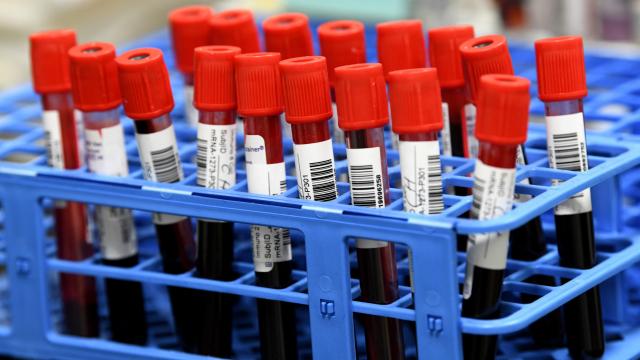On Tuesday, Biotech company Bluebird suspended its trials of gene therapy as a treatment for blood-related disorders over concerns of a possible increased risk of cancer. The company cited the recent discovery of two patients given the experimental treatment who developed a form of blood cancer, along with a similar case documented in 2018. At this point, though, it is not clear that the treatment is truly connected to these incidents.
Gene therapy has emerged as a potential breakthrough for treating diseases largely or entirely connected to genetic mutations. Typically, the goal is to create long-lasting or even permanent changes to certain cells by knocking out or replacing faulty genes. In 2017, the first gene therapy targeted at a specific mutation — one that causes vision loss — was approved by the U.S. Food and Drug Administration.
One appealing application for gene therapy has been sickle cell disease, a genetic disorder that causes a person’s red blood cells to be misshapen, rigid, and unable to travel easily through the body, leading to chronic anemia and often a shortened lifespan. People develop sickle cell disease because of a mutation (one that has to be inherited from both parents) that alters their production of hemoglobin, the oxygen-transporting protein that gives red blood cells their colour. Bluebird’s gene therapy treatment, called Lentiglobin, introduces a modified version of the gene responsible for hemoglobin into a person’s bone marrow, hopefully making them produce a form of hemoglobin that directly reduces levels of the diseased version.
In early clinical data, the results have looked promising, with patients experiencing a drastic reduction in related symptoms and improved blood work. But in December 2018, Bluebird reported that a patient given Lentiglobin developed myelodysplastic syndrome (MDS), a blood cancer that leaves blood cells unable to grow properly. At the time, the company determined that the patient’s condition was likely due to the chemotherapy they received before the gene therapy, which is used to condition the body to accept the treatment, since MDS is a known complication. The patient died last year.
However, at least one other patient in the sickle cell trials has since developed MDS, while a third patient has developed acute myeloid leukemia. Both patients had received the gene therapy years earlier, and the company said it learned of their cases last week. The culmination of these reports has led the company to suspend all of its ongoing gene therapy trials, including a Phase III trial for sickle cell, and notify relevant health agencies in the U.S. and Europe.
“The safety of every patient who has participated in our studies or is treated with our gene therapies is the utmost priority for us,” said Nick Leschly, Bluebird CEO, in a statement from the company. “We are committed to fully assessing these cases in partnership with the healthcare providers supporting our clinical studies and appropriate regulatory agencies. Our thoughts are with these patients and their families during this time.”
The company noted that no similar cases of blood cancer have been seen in concurrent trials of a similar gene therapy for thalassemia, another inherited disorder characterised by unhealthy hemoglobin. But they and the independent safety board that oversees these trials will now investigate whether the delivery method used for Lentiglobin, which relies on a modified lentivirus to deliver the therapy to cells, had any role in these cases (one notable lentivirus is HIV).
As promising as these gene-therapy treatments are, scientists have worried about their potential long-term risks and the aggressive chemotherapy often needed to make them work. Another concern has been that virus-based gene therapies may wear off over time. These therapies are also likely to remain exceedingly expensive for most to actually use.
The suspension of a clinical trial for safety reasons is common and not necessarily a sign of a treatment’s failure (last year, several covid-19 vaccine trials were suspended but eventually restarted). Time will have to tell whether these reports are evidence of a real heightened cancer risk from this treatment.
